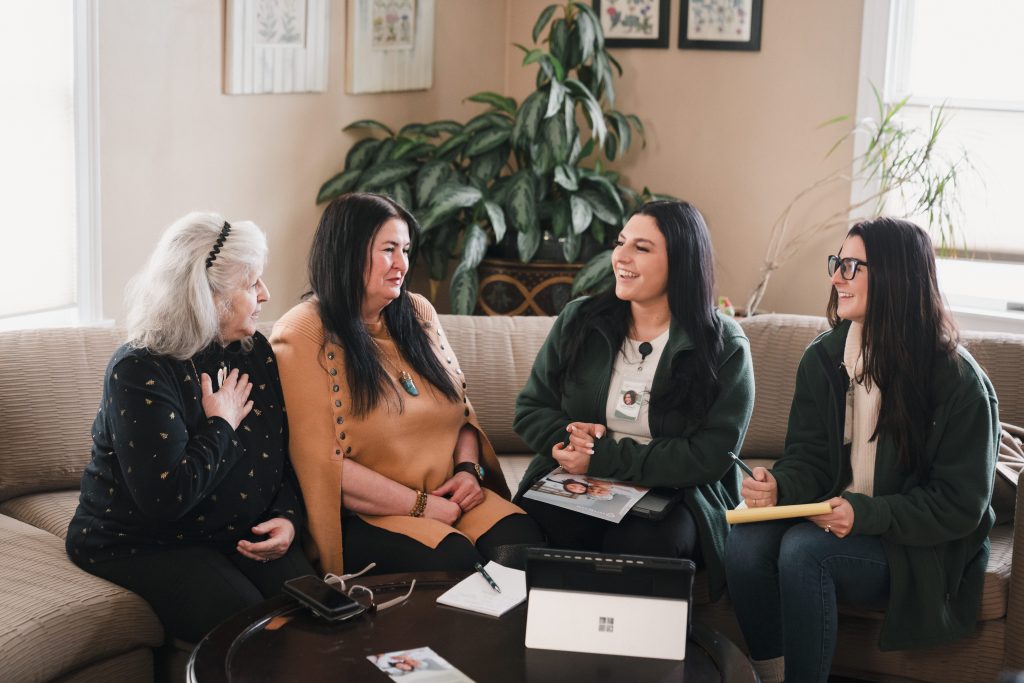In many states, patient care provided by friends and family plays an indispensable role in the health care system. They often assume primary responsibility for the care of their friends and family members in need, providing valuable support that goes far beyond purely medical care. This task comes with many challenges, but also brings deep personal fulfillment and strengthened relationships.
In this article, we highlight the many aspects and requirements of friend and family home care in the USA, provide helpful tips, and highlight support services that can make everyday life easier for caregivers.
What Does It Mean To Be the Caregiver for a Friend or Family Member?
As the caregiver for a friend or a family member, you are the primary person responsible for your loved one. You play a crucial role in their lives, recognize their needs, and make sure that they receive the best possible care.
However, it is essential that you do not neglect your own health and well-being. Caring for friends and family can be both physically and mentally draining. It’s perfectly normal to feel overwhelmed, insecure, or even angry at times.
As a caregiver, you have a huge responsibility. It is important that you do not operate in isolation. Seek relief and support, be it through professional counseling, support groups, or simply in discussion with friends. You don’t have to shoulder everything alone.
Important First Steps
- Seek support: There are many organizations that offer specialized advice and support for caregivers. Do not hesitate to make use of them.
- Build a network: Exchange ideas with other caregivers. Experiences and tips from others can often be of great help.
Decisions for Everyday Care
Remain at home or move to a nursing home?
Many people would prefer to be cared for at home in old age. But sometimes the requirements for care are so high that a nursing home is the better option. Take time to consider all the key factors when making your decision.
| The level of care required by the patient | What care does your friend or family member require? Does he or she need round-the-clock care, or only occasional help? Some people need specialized medical care that is difficult to provide at home. |
| Your skills and resources | Do you have the necessary knowledge and skills to provide the care required? Sometimes courses or training can help, but professional care may also be necessary. |
| Emotional strain | Caring for a friend or family member can be emotionally draining. Consider whether you are able to cope with the stress and emotional demands. |
| Time availability | Do you have enough time to care for your friend or family member? This may affect your work, social commitments, and other aspects of your life. |
| Financial considerations | Care at home can involve both costs and savings. It is therefore important to compare the cost of care at home (e.g. for professional help or home care services) with the cost of a nursing home. In some states financial support is available, and there may be other benefits that you can utilize. |
| Support network | Do you have a network of friends, family, or services that can help you? This can be crucial in sharing the burden of caregiving. |
| Quality of nursing home | If you are choosing a nursing home, it is important to consider the quality and reputation of the facility. An on-site visit can help you get a feel for the atmosphere and care provided. |
| The wishes of the patient | What does the patient want? Their wishes and feelings should play a central role in the decision. |
| Long-term outlook | Think about how the care situation could develop in the coming months or years. The care requirements might increase over time. |
| Health considerations | There are situations in which a nursing home may be the best option for health reasons, for example if specialized medical care or equipment is needed. |
Ultimately, the decision is very individual and should be made based on your specific situation and the needs of the patient. It may be helpful to seek professional advice, or advice from other caregivers, in order to make the best possible decision.

More about this topic
How Adult Foster Care (AFC) pays individuals for home care

The Caregiving Support Team That Feels Like Family

